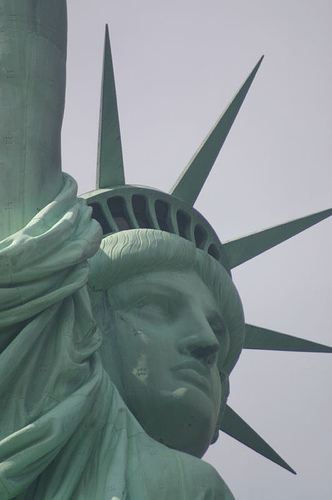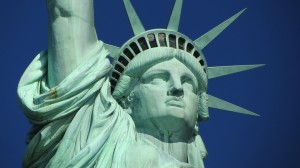
 By Eric Broxmeyer, Senior Associate, Gibson, Dunn & Crutcher LLP
By Eric Broxmeyer, Senior Associate, Gibson, Dunn & Crutcher LLP
The moment had finally arrived. All the evidence had been submitted, all the testimony heard. Sitting upright behind the bench, the Immigration Judge announced that he had reached a decision. In light of the evidence and testimony, the man to my left – a brave young man who had fled from a small West African country in fear for his life – had gained asylum in America.
His story began over a year before when his father, a Muslim elder, threatened to kill him for wanting to marry a Christian woman. That threat prompted him to leave his village, journey to another country in the region for safety, and – when that failed – seek refuge in the United States. Detained upon his arrival, he began another journey, this time through the immigration process. There he came to the attention of the CAIR Coalition, which took up his cause and referred him to me for representation on a pro bono basis. Because there is no right to appointed counsel in Immigration Court, I knew my client would have been alone in this process had I not agreed to representation. Over the next several months, I embarked on a journey of my own, as I strove to navigate my new client through the complex legal and procedural mechanics of a defensive asylum application.
The experience would prove to be one of the most fascinating and rewarding of my legal career. With the strong support of the CAIR Coalition and my law firm, Gibson, Dunn & Crutcher LLP, a junior associate and I were able to pull together affidavits from fact and expert witnesses, gather documents both within and outside the country, and track down domestic and international case law to support the client’s asylum application. The stakes were high – if we lost, the client would have been removed back to his home country. But after a full hearing on the merits where the government opposed asylum, the client got his most welcome news since leaving his village. He could remain in America and start a new life. Overcome with emotion – a moving mix of excitement and relief – he thanked everyone in the courtroom.
From the beginning, I felt a deep connection with this case. It was only a few generations ago that my family arrived in America, and I believed that it was very important to help someone who had just arrived himself. In addition, having married across religions myself, a well-established freedom in America, I admired someone who had taken a stand when he was unable to do so in his home country. Although I had done some work in immigration law and policy before, nothing had compared to participating directly in the asylum process and getting to know an extraordinary individual from another part of the world.
In the end, I came away from this case with a real appreciation for the asylum process. I found everyone whom I met or contacted to be very professional, open-minded, and diligent. Even the most difficult part of the case – the language barrier between the client and me, which required the assistance of a number of able translators – gave me good insight into the practical challenges facing the asylum system at large. I will never forget my experience representing an asylum applicant in Immigration Court, which allowed me to make a real difference in the client’s life.
